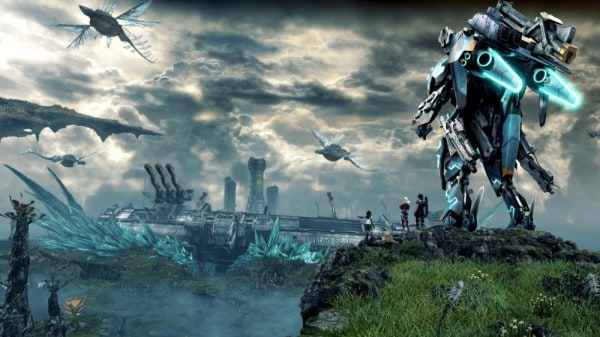There’s no such thing as the perfect video game. There can’t be. We’ve come close a few times, with titles like Portal or Ocarina of Time, but games are made by people, and people aren’t infallible. There will always be glitches, bugs, or exploits. As a culture, gaming has grown to accept this, albeit, with a grain of salt, and move past it. Thanks to the rise of internet connected games, we’ve also benefited from patches, or in some cases, complete re-releases of games to solve issues.
It seems, however, that in 2015 all of that sort of fell by the wayside, and this year, and the holiday season especially, has been pockmarked and savaged by rampant bugs and unfinished products masquerading as full release titles. We’ve had broken games, sure, with titles like Afro Samurai 2 being so bad that it was pulled from shelves. But AS2 was a budget title to begin with, squeezed out by an indie team, not a AAA developer. But over the last few months we’ve seen major releases from huge teams sent out in buggy, unfinished, or poorly optimized states, and it’s starting to get embarrassing.
Back in September, a quality assurance team spoke to MCVUK.com and warned that publishers haven’t learned anything from last year, and that all of the major releases this year will have major issues. It seems as though they’re right, and that’s an incredibly worrying thought. Publishers are pushing out games for a quick buck with the promise of patches to come post release to make it all better, and it’s probably about time we stop accepting this.

To a certain degree, it our faults as gamers. We buy into pre-orders, Kickstarters, or early access games. We’re paying money, sometimes full price, for products not yet available to us, then getting shocked when it’s not as good as we hoped, or releases in an incomplete state. We’re supporting developers with a history of buggy, unpolished games, then defending them for whatever reason because of the vague promise of patches or, shockingly, mods to fix the game’s issues.
Million dollar games are releasing in worse shape then tiny indie products, and the hope that this will get better is diminishing every day. We saw a massive, AAA game pulled from shelves for six months only to be re-released again, still broken, and had the developer finally give up and offer a no questions asked refund. Batman: Arkham Knight wasn’t made by six people in a basement, this was a multi-million dollar product, and yet it was less stable and less playable then Sunless Sea, a game made for around $100,000 dollars.
Arkham Knight came out in the summer of 2015, and should have been a warning. But like good little consumers, we soldiered on, hopeful for the holiday releases. Our reward? Fallout 4 is buggy, poorly optimized, and looks like a 2011 game. Assassin’s Creed: Syndicate and Rainbow 6: Siege continue Ubisoft’s proud tradition of nearly hilarious buggy releases. Call of Duty: Black Ops 3 is insanely poorly optimized and suffers from massive graphical problems across all platforms. Just Cause 3 barely works at all on X1 and has massive issues running smoothly on PC or PS4. Not even Nintendo is safe, with Xenoblade Chronicles X receiving free and massive DLC packs to help reduce load times and make the game run better.

Perhaps the saddest thing is that all of these games will still be profitable, many of them already are. Fallout 4’s launch was so enormous that it affected people watching porn. Most of the games mentioned above are at the top of the sales charts for their respective platforms. The average consumer either doesn’t learn, or doesn’t care about how problematic their game is, and developers and publishers are well aware of this. It’s not even a problem specific to 2015, since last year we saw the release of the completely unplayable Master Chief Collection of Halo games, Sonic Boom was a joke (although not totally surprising) and Assassin’s Creed: Unity and Assassin’s Creed: Rogue nearly put the nails in the coffin of their series.
The truth is, these games cost a lot of money to make, and there’s often very strict release dates set months, or years in advanced. For whatever reason, publishers are still under the belief that if a game is delayed people won’t want to buy it, and while Duke Nukem: Forever became the unfortunate poster child for that, it’s also the exception. Half Life 2 was delayed by a year, and is widely considered one of the greatest games ever released. GTA V was delayed on PC by a year and was widely acclaimed and insanely well received by the PC crowd. Pushing a game back in order to make it better isn’t a bad thing, and as long as the time is actually spent making the game better, people will accept the wait.
Who knows, maybe 2015 will be a tipping point. User reviews for many of the above mentioned games skewed negative, and online boards are up in arms about these releases. Nowhere is this more evident than on the PC, where Steam, Origin, GOG.com, and various other retailers all offer full refunds on purchases. Oddly, Ubisoft does not, take that as you will. Regardless, we’re starting to witness a massive push back against this shoddy, and incredibly shady, type of marketing, and more and more people are turning away from things like pre-orders and early access releases. Marketing is starting to fail, and we witnessed Deus Ex: Mankind Divided reverse it’s downright terrible pre-order scheme.
We can only hope that the future will be a little brighter, and that this idea of releasing a broken game to be fixed later will stop being the norm. Remember to vote with your wallet, and always request a refund on a broken product.

